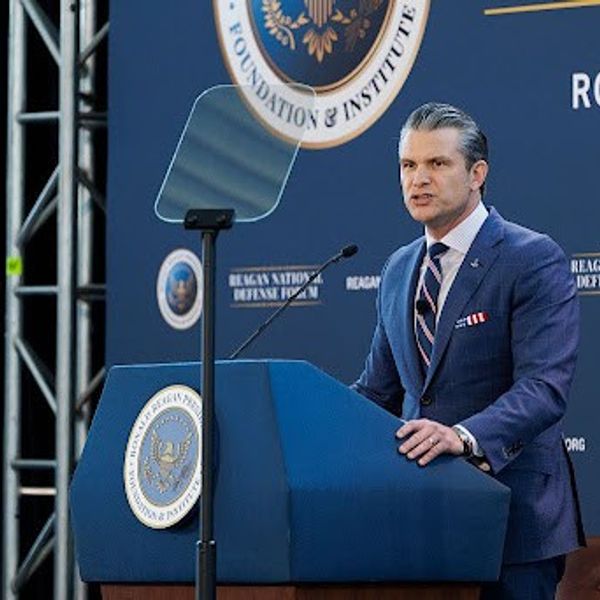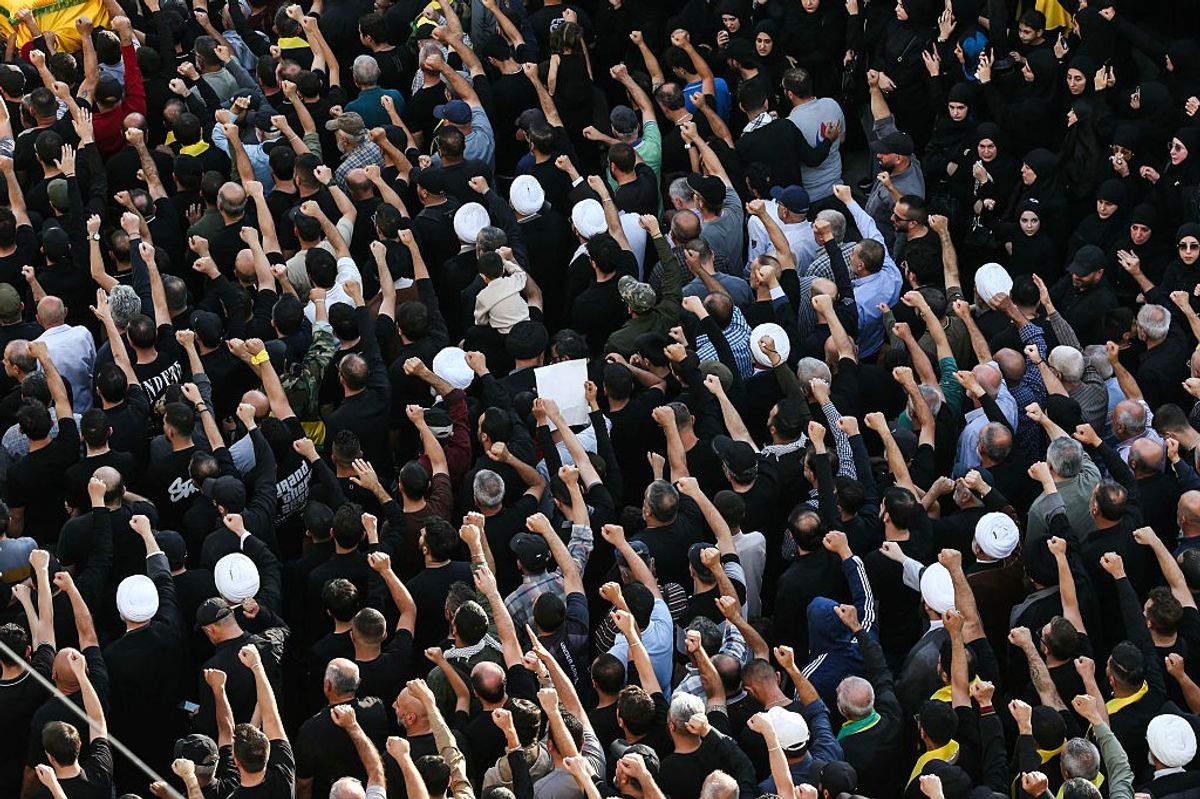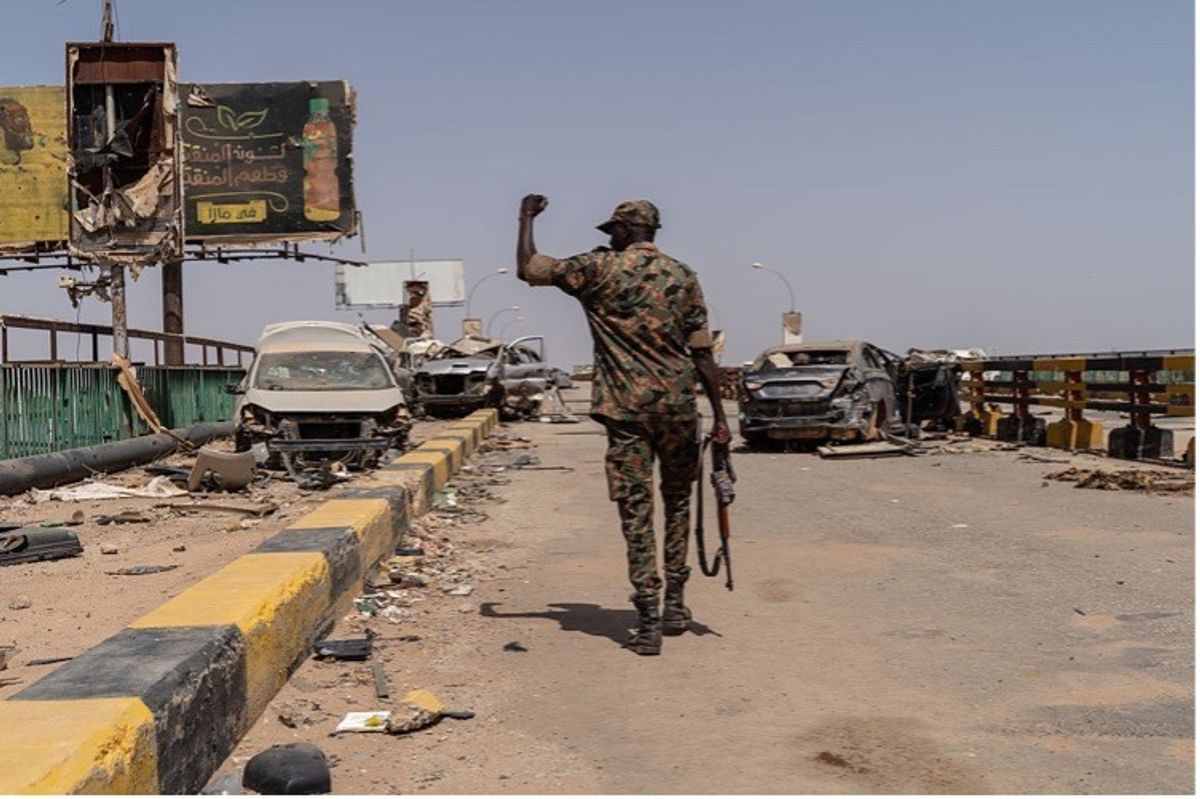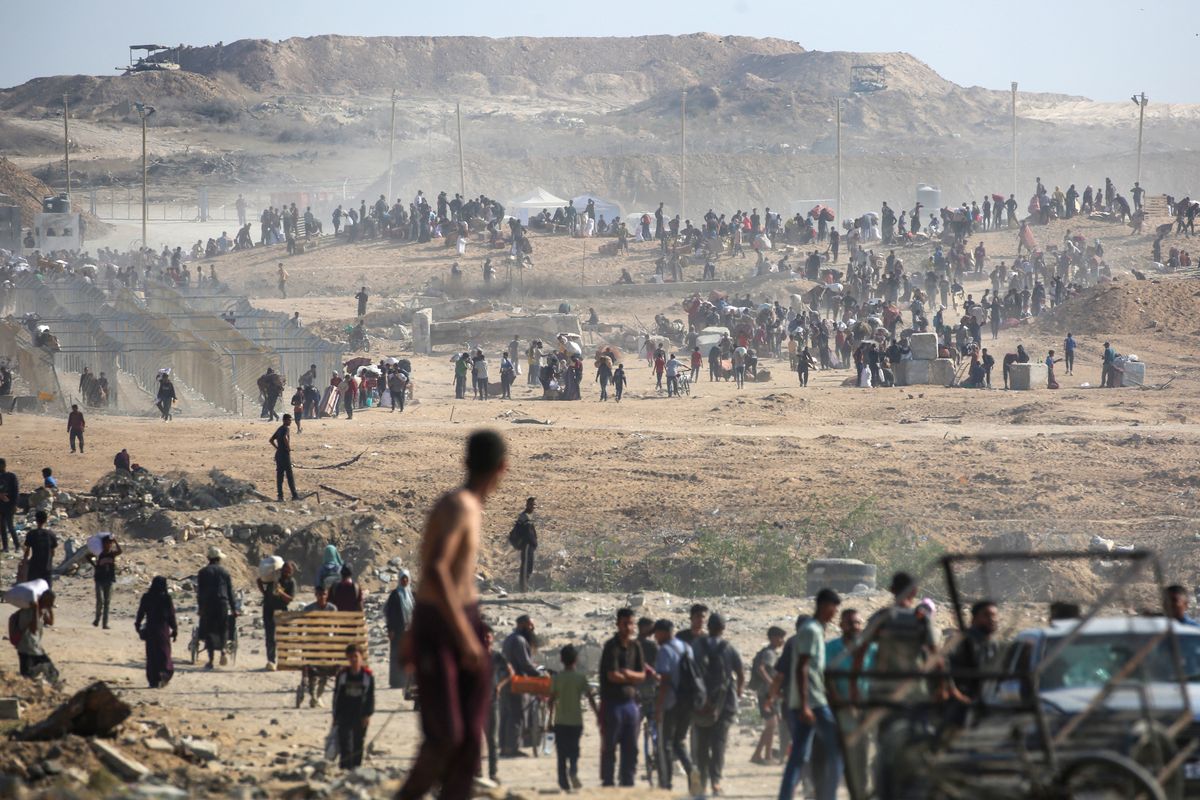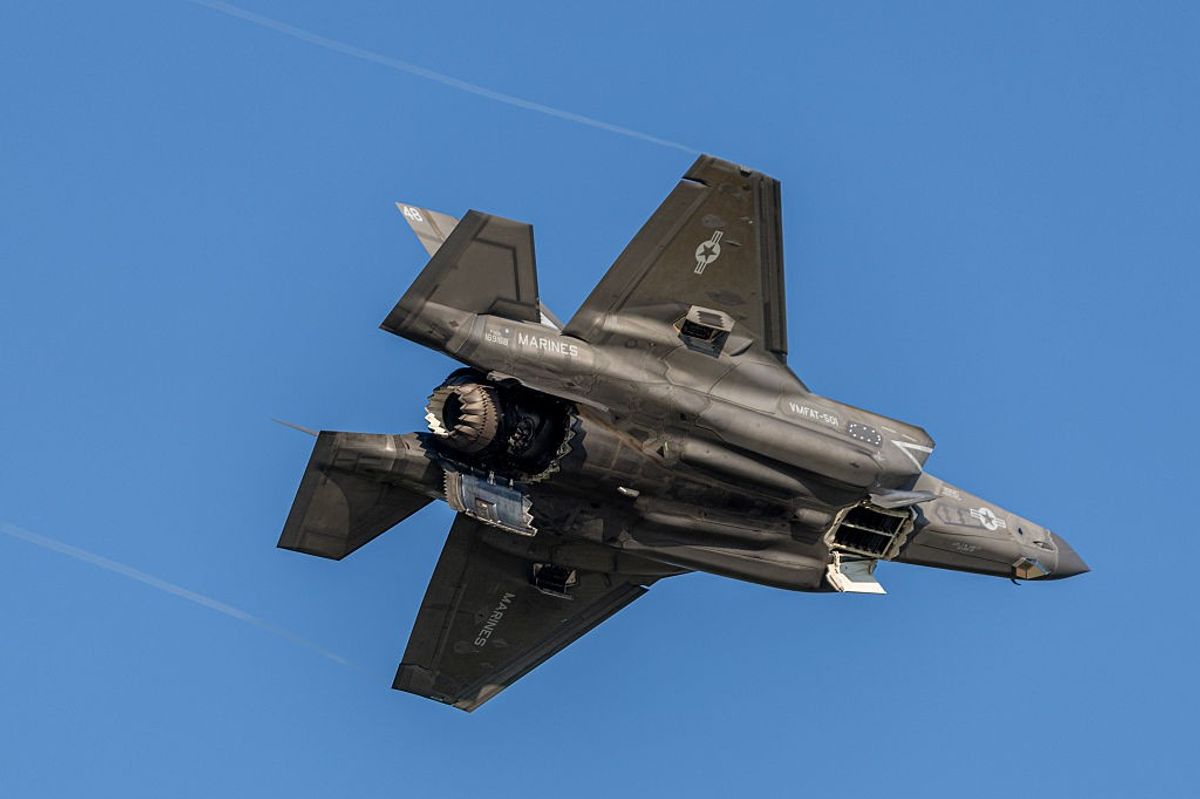EXPERT Q&A – This week President Donald Trump spoke with his counterpart in Turkey, Recep Tayyip Erdoğan, and there are reportedly plans in place for a visit of the Turkish leader to the White House in April. Like many other global leaders, Erdogan is working to craft responses to various statements and moves taken by the second Trump administration in its first two months in office.
Turkey carries influence on a range of geopolitical fault lines. It straddles Europe and Asia, and over the past three years it has balanced substantial military aid to Ukraine with an ongoing commercial relationship with Russia. And Turkey is reportedly seeking to take advantage of the U.S. retreat from NATO and from Europe to push for closer economic and security ties with Europe. As a Bloomberg report put it, “Turkey wants closer cooperation with Europe in return for security, as the continent looks at ways to reduce reliance on Trump's America.
Turkey is also deeply involved in Syria, as that country struggles in the aftermath of the rebellion that ousted longtime ruler Bashar al-Assad last December.
Cipher Brief Managing Editor Tom Nagorski spoke with former U.S. Ambassador to Turkey James Jeffrey, who offered a sweeping look at the various issues in play for Turkey at the moment.
Their conversation has been edited for length and clarity. You can watch the full interview at our YouTube channel.
The Cipher Brief: All kinds of countries, big and small, are calibrating their own responses to developments in Washington, and statements from the White House in the first months of the Trump administration. What is Turkey most concerned about, vis-a-vis those developments ?
Amb. Jeffrey: The Trump revolution, as it were, is only the fourth wave that we've seen over the last few years. Just a few years ago, the Biden 2021 national security strategy was a good document that reflected the first of those waves, which was the end of the post-Cold War era and the return of great power competition, although Biden put it in slightly different words. Then we had – one after the other – the Russian invasion of Ukraine, breaking one of the basic tenets of the post-World War II order; we then had the dramatic defeat, all across the region, of Iran and its various proxies by Israel after the Gaza attack; and then finally, Trump.
In this world, Turkey seems to be doing pretty well. First of all, Erdogan and the people around him all are realpolitik in their outlook. He differs from most of his advisors in that he is also a serious Islamist. How much that impacts his foreign or even domestic policy beyond rhetoric is something we've all been debating for 20 years. Let me say that you can rely on Erdogan to react in a realpolitik way, and realpolitik people are pretty comfortable in this new era.
He's got the messy Middle East to his south and he's got Russia and NATO to his north and northwest. But he's in a good position. Turkey is a G20 country, one of the top 15 economies on most days. It has good energy relations with Russia, some with Iran, although he sees himself, as do most Turks, as competitors to both. They're quite effective these days in the Middle East, having rekindled relations with the Gulf States, notably Saudi Arabia and the Emiratis, who bailed Erdogan out financially a couple of years ago.
They are, in most respects – although Poland is creeping up on them – the second largest and second most powerful military force in NATO, after us. They've played a crucial role in the Ukraine war by restricting Russian reinforcements into the Black Sea. They found an obscure paragraph in the Montreux Convention to do this; it has been very effective. That gives Erdogan the leverage to also reach out to the Russians. They still import gas. Their banks still play footsie with the Russian banks, but they're also very supportive of Ukraine.
Interestingly, Erdogan has long advocated for the policy that President Trump seems to be trying to pitch to Zelensky, which is: This war makes no sense. It's a stalemate. You're not going to get back those territories that Russia has conquered. Erdogan is unhappy about Crimea going to the Russians because of relations with the Crimean Tatars who are part of the Ottoman Empire and religiously close to the Turks. But notwithstanding, they can live with that.
What they can't live with is Ukraine collapsing or even the Ukrainian coastline, including Odesa, falling to the Russians. The Black Sea is Turkey's near abroad, and they will work with us and with NATO to ensure that Ukraine doesn't be defeated. On the other hand, they don't really see a future for Ukraine in NATO. They're willing to contribute, under the right conditions, peacekeepers to a post-ceasefire settlement. Watch that spot because it's something that Erdogan pitched, at least indirectly, to President Trump with his call over the weekend. And there's a lot of possible synergy between Washington and Ankara on this.
The Cipher Brief: What about the situation in the Middle East – the flareups there, the U.S. involvement, and Turkey’s role?
Amb. Jeffrey: The Middle East is more mixed. Turkey is an effective counter to Iran in Syria and Iraq, particularly in Northern Iraq among the Kurds who have a good relationship with Erdogan, and in Azerbaijan. He's also more confident in those three areas because he's working hard to solve his own internal Turkish-Kurdish problem by rapprochement with the PKK [the Kurdistan Workers Party]. This has pretty dramatic, mainly positive, effects on not only the domestic situation in Turkey, but also the region.
The one downside is Israel in general, and in particular, Gaza and Syria. The Turkish population, like Arab populations, have been aghast at the high civilian casualties in Gaza. They do not understand what Israel is doing. I think most fair people who have a realpolitik background do understand, but Islamic populations throughout the Middle East, including Turkey, don't. The problem is that Turkey is actually an effective democracy, unlike most Arab states, and therefore Erdogan has to pay attention to that, particularly as it's mainly his base, the more devout Muslims among the Turkish population, who feel so strongly. So what has long been a good relationship with Israel right now is down the toilet, so to speak. In particular, the Netanyahu-Erdogan relationship — as I got to see firsthand when I was doing the Syria account a few years ago and had to deal with both of them — they had a commonality of interest in Syria, but were almost willing to tear it up to foil the other. They were that antagonistic to each other. And we see some of this now.
The main way that this is being played out is in Syria. That's the other issue that Erdogan raised with President Trump. Erdogan, of course, is interested in the SDF [Syrian Democratic Forces] partners in Syria in the fight against ISIS, who are at the same time the local branch of the PKK. But because Erdogan is working on a ceasefire with the PKK overall, he's willing to let the Syrian Democratic Forces, the Kurds in Syria, work out a deal with [Ahmed] al-Sharaa, the new leader of Syria. And that's looking promising.
The bigger problem right now, with us in the middle, is between Israel and Turkey. The Turks and the Israelis both see Iran as the biggest threat to the region, and the second biggest threat to the region is Sunni Jihadist extremism. They have a commonality of interest on paper, but Gaza has soiled the sheets in the bilateral relationship, unfortunately.
What has happened in the culmination of events across the region since the 7th of October 2023 is that Iran is for the moment down – it's not out and it will come back, I fear. But for the moment it's down, and right now, Iran is effectively out of Syria. And therefore, the Israeli and the Turkish interests are colliding in some respects. This is unfortunate because, as I said, they both have an interest in a stable Syria, keeping Iran out and keeping the remnants of the Islamic State and other jihadist movements down. But the natural tendency in a realpolitik world, and that defines the world that both Netanyahu and Erdogan think they're in, when you get two powers that have somewhat conflicting worldviews rubbing up against each other in a vacuum, you've got trouble and that's what we have right now.
That's something that Washington normally would play the honest broker on. And we did so in the first Trump administration and indirectly and in a kind of half-hearted way in the Biden administration. But right now, this Trump administration is not really focused on Syria. They've done a great job in the rest of the Middle East. I have to say for the guy for the pivot to Asia gang with a passion, they're doing a hell of a lot of Middle East stuff and most of it very effectively, including the latest campaign against the Houthis. But in Syria, they've shown little interest, attention or high level involvement. And this is leaving the issue to staff, many of whom are not yet on board. And the result is that the Israelis have tremendous sway in Washington over perceptions of Syria – that al-Sharaa, the current president of Syria with his Hayat al-Sham terrorist background, and the Turks with Erdogan as the Islamic leader, are ever more a threat to Israel.
The problem is that the more you act on this threat, and the Israelis are doing this by moving forces forward and doing some bombings of former Assad military holdings all throughout the south of the country, is that you create a threat even if one isn't there. So again, this is something that Washington will have to look out for. It's something that Erdogan raised in his conversation with the president.
Finally, the other issue is military. The Turks want to be out from under the U.S. sanctions imposed for having bought the S-400 system [from Russia]. They want to continue with the big F-16 sale [with the U.S.] that they broke a couple of years ago in return for the vote on Sweden entering NATO. And they would actually like to get back into the F-35 program. So all in all, with Trump, they have an American leader who is more sympathetic to Erdogan, and Erdogan's rather authoritarian way of governing, than Joe Biden or Barack Obama were. But nonetheless, there are some strains in the relationship, mainly because of the Israeli factor.
The Cipher Brief: Let's say there is a meeting between Trump and Erdogan, and you're advising President Erdogan. What are the one or two key things you would suggest that he wants to try to get from that meeting?
Amb. Jeffrey: He needs a win. And the win would be on one of these military issues, because they're what the Turks refer to as remaining irritants in the relationship. The Turks put a great deal of emphasis on them, like President Trump puts great emphasis on balances of trade.
The second thing I would advise him to do is press Washington to use Turkey and consult with Turkey on going forward with Putin on Ukraine, given the key role Turkey has played in its good relations with both Zelensky and Putin and the fact that Turkey is a powerful player.
And then on Syria, urge Trump to get more involved. Probably keep the [U.S.] troops on even though Erdogan will say one or two bad things about the SDF because he has to. But basically say, Hey, help me in stabilizing the country and work with the Israelis — we’re not their enemy.
The Cipher Brief: And then let’s say you're advising the White House team. What are reasonable things that they should seek?
Amb. Jeffrey: First, despite the good relationship between Erdogan and Trump, it has had explosive moments. So manage the meeting carefully in terms of atmospherics. They should be good, but they can go south quicker than you can say “Zelensky.”
Secondly, hear the man out. He's an ally. He won't nag you like the Western Europeans do on your domestic actions. And he has a realistic view of Iran, a realistic view of Russia, and he will probably ask you to help on Israel in one way or another.
Read more expert-driven national security insights, perspective and analysis in The Cipher Brief




